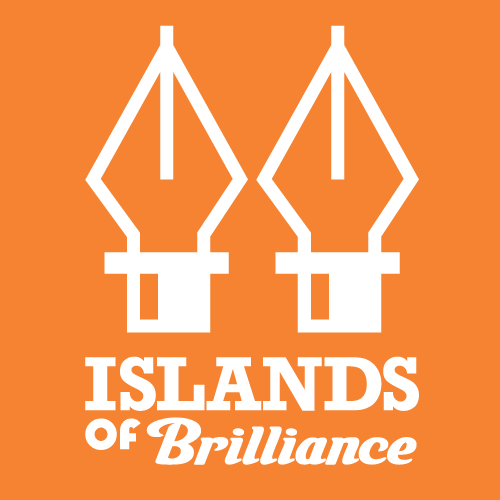“The Pivot”: The Need for and Value of Change
Students thriving in distance learning environment.
Until March of this year, I had not truly given thought to what it means to pivot. Being part of an organization with a mission that targets changing perceptions around autism, I thought I understood the nature and value of change - and then everything changed.
As the Director of Integrated Learning at Islands of Brilliance, I’m charged with staying focused on the lens of the student with autism and marking moments when our community makes “the pivot” toward changed perception of self and others. During in-person workshops, I am able to witness our students and mentors creating together in professional-level software, connecting around topics of common interest, and raising expectations for one another and for themselves about what is possible. After each workshop is over, I ask them questions about their experiences and their responses provide evidence that what they are doing at IOB is not only fun and engaging, it’s equally meaningful and important. “The pivot” toward changed perception is critical to foster improved outcomes for our students, mentors, and families since those moments provide the changes that allow our community access to new thinking about what they can do in the future.
Almost all of the programming at Islands of Brilliance was in person prior to March. Hybrid models in our Digital Academy had already been introduced, providing platforms for digital discourse and learning. As a team, we knew that online learning was important. We knew that online learning could contribute to scaling and widening the impact of Islands of Brilliance to families around the country, but we were just beginning to dip our toes into the online waters.
At the start of the COVID-19 shut down, Digital Academy, our higher-level learning opportunity aimed at workforce development skills, fully transitioned to distance learning and nearly all of the students moved with us to this model. Although they say they miss coming to the studio, many of our students say they are more comfortable learning at home. Because they are more comfortable, we get a chance to interact more often and more individually with our students. They connect with one another almost daily, which is a big switch from their in-person Digital Academy experiences. Additionally, barriers for our community such as transportation and navigating difficult sensory issues have been eliminated. This month, our Digital Academy students are now participating in an online software development sprint around video game creation, using the skills they acquired in spring via distance learning. Students are 3D modeling game assets in 3DS Max and ZBrush, developing in Unity, and creating user interface iconography in Photoshop and Illustrator - all from the comfort of home.
IOB’s Brilliant Breakfast Club (BBC) is another example of how our community has made “the pivot” during the pandemic. BBC is normally a monthly gathering of young adults with autism who meet at a Milwaukee restaurant for breakfast and then use public transit to travel to the IOB studio for engagement in activities centered around daily living skills. This group now meets weekly in Zoom, enjoying casual conversations about their favorite music, movies, and art, while weaving in important topics like wellness, money, and advocacy. The participants look forward to connecting each week and say that their time together makes them feel connected to a community while they are staying safe at home.
The early victories that our students are experiencing in the online IOB community leave us pondering how to continue to do the thing we are good at - meeting them where they are. We will keep exploring whether online environments are better for encouraging socialization and learning. For example, it seems that using text chat slows down communication processes enough to allow our students access to language, which is something that our students find troubling about verbal communication. As we move forward and develop this type of programming, we will continue to ask students what works best and coach them to use the tools they need to make learning meaningful.
The nature of “the pivot” requires new thinking. The Islands of Brilliance community is full of passionate families, volunteers, and staff who have made the changes in thinking needed to shift to a distance learning model of engagement. It seems fitting that an organization built on changing the thinking around the capabilities of those on the spectrum would fully embrace the changes in thinking needed to continue serving them in these challenging times.


